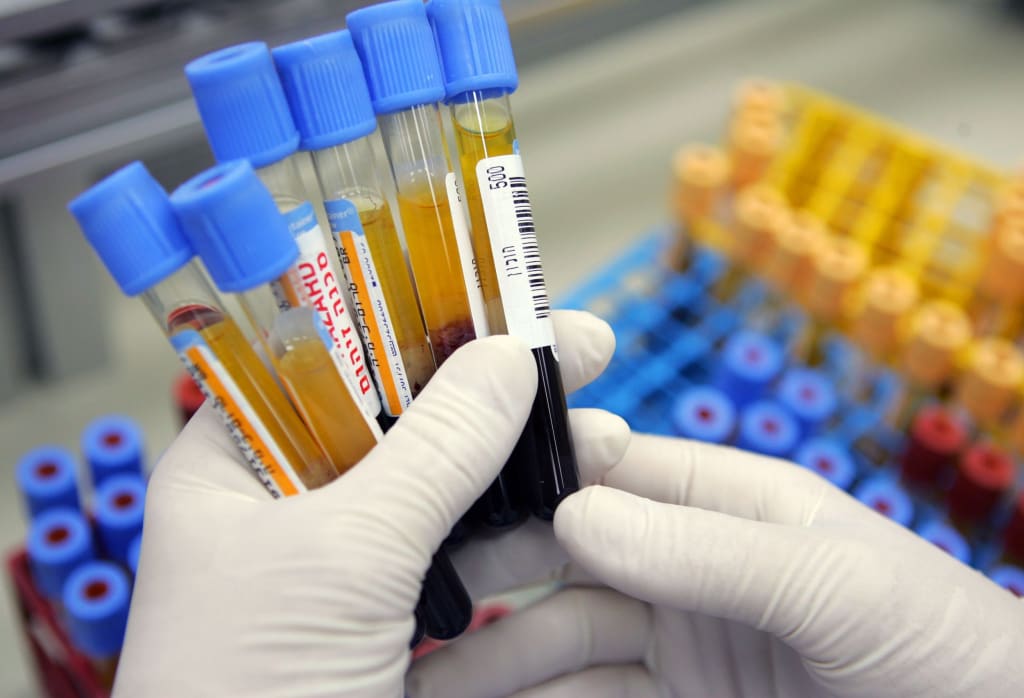The Power of Blood Tests
Take charge of your Health

Unleash the Power of Blood Tests
Blood Tests: Understanding the Importance and Benefits
Did you know that a simple blood test can reveal crucial information about your health? From detecting chronic diseases to monitoring treatment progress, blood tests play a vital role in maintaining your well-being.
Introduction:
Blood tests are a routine medical procedure that many of us undergo at some point in our lives. These tests provide critical information about our health, helping doctors diagnose illnesses, monitor treatment progress, and assess overall well-being. Whether it’s a simple blood glucose test or a comprehensive blood panel, blood tests play a vital role in maintaining our health.
However, despite their importance, many people are intimidated by blood tests and the results they yield. In this article, we’ll demystify blood tests and explore the various types of tests available, what they measure, and why they’re crucial to our health.
Types of Blood Tests
There are many different types of blood tests, each designed to measure specific markers in the blood. Some of the most common blood tests include:
Complete Blood Count (CBC)
Blood Glucose Test
Blood Lipid Profile
Liver Function Test
Kidney Function Test
Electrolyte Test
Thyroid Function Test
What Do Blood Tests Measure?
Blood tests measure a variety of markers in the blood, including red and white blood cells, platelets, hormones, glucose, lipids, electrolytes, and more. By analyzing these markers, doctors can gain insight into various aspects of our health, such as:
Anemia and Blood Disorders: Blood tests can detect the presence of anemia, a condition where there is a lack of red blood cells, or other blood disorders such as leukemia and lymphoma.
Metabolic Disorders: Blood tests can reveal markers of metabolic disorders, such as high blood sugar levels indicative of diabetes, or elevated lipids associated with heart disease.
Liver and Kidney Function: Blood tests can assess the health of the liver and kidneys, helping to identify potential issues such as liver disease or kidney failure.
Electrolyte Imbalances: Electrolytes play a crucial role in many bodily functions, and blood tests can determine if there is an imbalance that needs to be addressed.
Thyroid Function: Blood tests can measure the levels of hormones produced by the thyroid, helping to diagnose thyroid disorders such as hypothyroidism or hyperthyroidism.
Why Are Blood Tests Important?
Blood tests are an essential tool in maintaining our health, helping doctors to detect and diagnose illnesses, monitor treatment progress, and assess overall well-being. Some of the benefits of blood tests include:
Early Detection: Blood tests can detect health issues in their early stages, when they are most treatable. For example, a blood glucose test can reveal the onset of diabetes, while a blood lipid profile can detect the presence of high cholesterol, which is a risk factor for heart disease.
Monitoring Treatment Progress: Blood tests can be used to monitor the effectiveness of treatment for various illnesses. For example, liver function tests can be used to monitor the progress of liver disease, while CBCs can track the success of cancer treatments.
Assessing Overall Health: Blood tests provide a comprehensive overview of our health, helping doctors to identify potential issues and recommend appropriate treatments.
Conclusion:
Blood tests are an important tool in maintaining our health, providing crucial information about our well-being. Whether you’re undergoing a routine check-up or seeking treatment for a specific illness.
Click Here for your health!





Comments
There are no comments for this story
Be the first to respond and start the conversation.